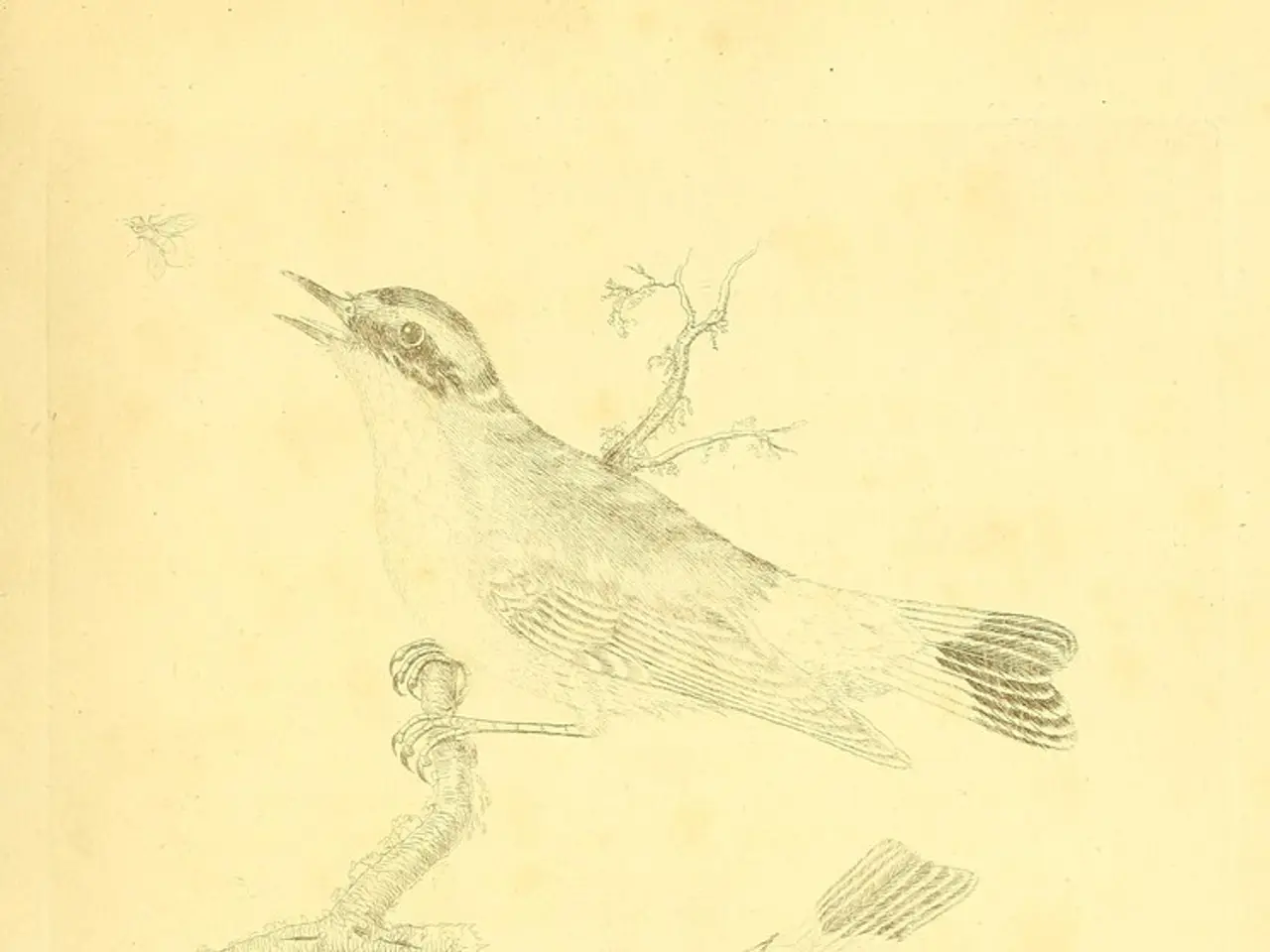Research at UMass Amherst reveals dopamine's significance in a songbird's brain's adaptability
In a groundbreaking study, a team of neuroscientists at the University of Massachusetts Amherst have demonstrated that dopamine plays a crucial role in how songbirds learn complex new sounds. The research, published in the Journal of Neuroscience with the DOI: 10.1523/JNEUROSCI.2823-20.2021, was led by Liao et al. and published in 2023.
The study provides insights into how spoken language is learned, paralleling human brain lateralization for speech learning. The researchers found that dopamine receptors are present in many types of neurons in the songbird auditory brain. Using a whole cell patch clamp technique, they studied the effect of dopamine on these neurons.
The research team conducted experiments both in vitro and in vivo. In live birds, they observed that dopamine activation causes inhibitory neurons to fire less and excitatory neurons to fire more. This was also observed when birds were played birdsong, with excitatory neurons responding more and inhibitory neurons responding less when dopamine activation occurred.
The findings suggest that dopamine plays a role in sensory learning in vertebrates that need to learn complex sounds, such as humans. The researchers developed a test similar to Pavlov's dog experiment, focusing on the association between a meaningless sound and a behaviorally relevant thing, such as a video of other birds.
Intriguingly, the researchers found an increase in gene expression in the left hemisphere, the ventral part of the auditory region, in dopamine receptor-expressing neurons. This reflects the learning process, offering further insight into the role of dopamine in auditory learning and the encoding of sound in the brain.
Moreover, the research shows that dopamine drives plasticity in the auditory pallium of zebra finches. However, it also reveals that dopamine activation makes neurons unable to adapt to new songs presented to the animal. This could potentially help in understanding how animals, including humans, process and learn complex sounds.
The study provides a significant step forward in our understanding of the complex neural mechanisms underlying learning and adaptation in vertebrates, offering promising avenues for future research in this fascinating field.








